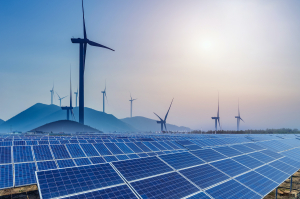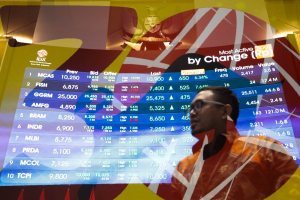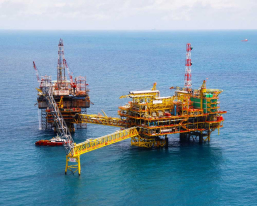Cerestar sets IDR 300 billion Capex to increase production capacity
Wheat flour producer PT Cerestar Indonesia Tbk (TRGU) has set a Capital expenditure (Capex) in 2023 worth IDR 300 billion (US$ 19.7 million) to increase its production capacity and sales.
Established in 2020, Cerestar produces a variety of flour products for retail, bakery ingredients, food ingredients and feed ingredients. Its brands include Falcon, Bakerstar, Agri 1st Seagull, Dragonfly, Armada, Starfish and Manta. The company operates 2 mills in Medan, North Sumatra; 1 mill in Cilegon, Banten; and another one in Gresik, East Java. It has two subsidiaries, namely PT Agristar Grain Industry and PT Harvestar Flour Mills.
Ready for rising demand in Ramadan and Eid holidays
This year, Cerestar will focus on increasing its sales target. "The 2023 Capex is around IDR 300 billion to increase our flour production capacity and to build warehouse and packing facility infrastructure for animal feed ingredients," Corporate Secretary and CFO Mulyadi Chandra told Kontan on February 16, 2023.
"In certain events such as the Eid holiday, the demand usually increases. Therefore, we continue to try to meet existing requests by increasing production and storage capacity," he said. "One of our policies is to maintain stocks of flour products."
Its subsidiary Harvestar in Gresik has a total production capacity of 1,600 metric tons per day. Chandra said that the factory was currently in the process of increasing its production capacity to reach 2,200 metric tons per day and would be operational in the Q4 2023.
The company also targets to finish its warehouse in Cilegon.
"As previously explained, we are in the process of building a warehouse for Agristar in Cilegon. We hope to be able to operate commercially at the end of the second quarter this year or at the beginning of the third quarter of 2023," said Chandra.
He also explained that the storage facility in Cilegon had a capacity of 38,000 metric tons for animal feed business.
Risks in flour industry
The flour industry is facing several challenges:
- Volatility in the wheat flour market: The price of wheat flour on international market has been volatile, which has made it challenging for Indonesian flour mills to secure a steady supply of wheat flour at a stable price.
- Competition from imported flour: The flour industry faces competition from imported flour, which is often cheaper and of higher quality than locally produced flour. This has led to a decline in the market share of Indonesian flour mills.
- Infrastructure issues: Flour industry is hindered by inadequate infrastructure, including poor road networks, port facilities and power supply. This has led to increased transportation costs and delays in the delivery of raw materials and finished products.
- Inconsistent government policies: Policies such as changes in import tariffs, quotas and regulations, have made it difficult for Indonesian flour mills to plan and invest in their operations.
- Limited availability of wheat: Indonesia has limited arable land for wheat cultivation. The country relies heavily on imported wheat to meet the demand for flour. This dependence on imports has made the flour industry vulnerable to fluctuations in the global wheat market.
- Food safety concerns: The industry faces food safety concerns, including the risk of contamination from bacteria and other pathogens. Producers must ensure that their products meet the necessary food safety standards to protect consumers.
These challenges have made it difficult for domestic flour industry to maintain a sustainable and profitable business. However, with proactive measures, such as investment in technology and infrastructure as well as improving government policies and regulations, the industry can overcome these challenges and thrive.
Tag
Already have an account? Sign In
-
Start reading
Freemium
-
Monthly Subscription
30% OFF$26.03
$37.19/MonthCancel anytime
This offer is open to all new subscribers!
Subscribe now -
Yearly Subscription
33% OFF$228.13
$340.5/YearCancel anytime
This offer is open to all new subscribers!
Subscribe now






